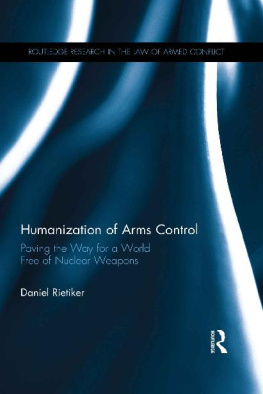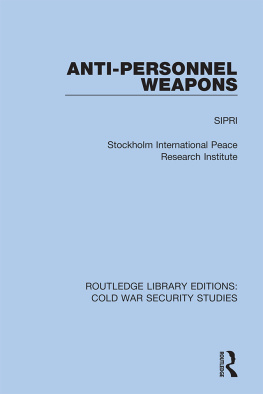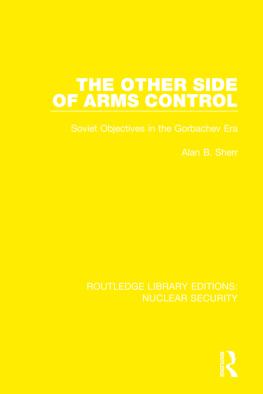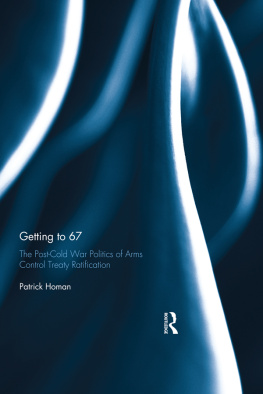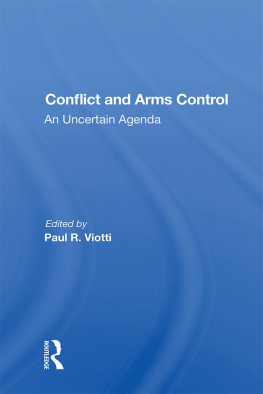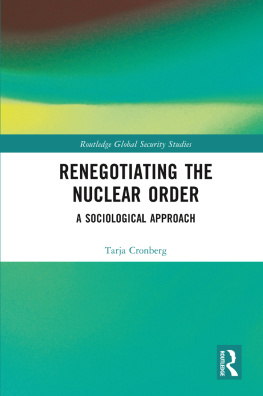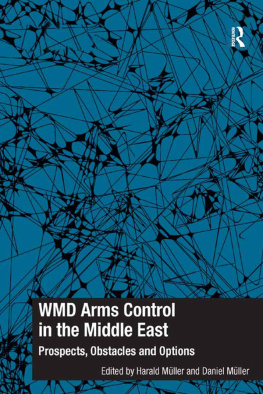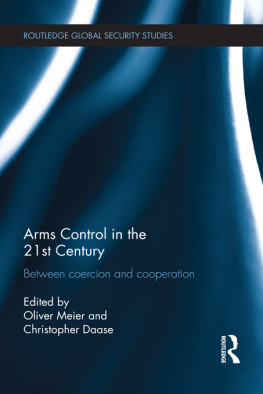Daniel Rietiker - Humanization of Arms Control: Paving the Way for a World free of Nuclear Weapons
Here you can read online Daniel Rietiker - Humanization of Arms Control: Paving the Way for a World free of Nuclear Weapons full text of the book (entire story) in english for free. Download pdf and epub, get meaning, cover and reviews about this ebook. year: 2017, publisher: Routledge, genre: Science / Politics. Description of the work, (preface) as well as reviews are available. Best literature library LitArk.com created for fans of good reading and offers a wide selection of genres:
Romance novel
Science fiction
Adventure
Detective
Science
History
Home and family
Prose
Art
Politics
Computer
Non-fiction
Religion
Business
Children
Humor
Choose a favorite category and find really read worthwhile books. Enjoy immersion in the world of imagination, feel the emotions of the characters or learn something new for yourself, make an fascinating discovery.
- Book:Humanization of Arms Control: Paving the Way for a World free of Nuclear Weapons
- Author:
- Publisher:Routledge
- Genre:
- Year:2017
- Rating:4 / 5
- Favourites:Add to favourites
- Your mark:
Humanization of Arms Control: Paving the Way for a World free of Nuclear Weapons: summary, description and annotation
We offer to read an annotation, description, summary or preface (depends on what the author of the book "Humanization of Arms Control: Paving the Way for a World free of Nuclear Weapons" wrote himself). If you haven't found the necessary information about the book — write in the comments, we will try to find it.
Despite clear legal rules and political commitments, no significant progress has been made in nuclear disarmament for two decades. Moreover, not even the use of these weapons has been banned to date. New ideas and strategies are therefore necessary. The author explores an alternative approach to arms control focusing on the human dimension rather than on States security: humanization of arms control!
The book explores the preparatory work on arms control treaties and in particular the role of civil society. It analyzes the positive experiences of the movements against chemical weapons, anti-personnel mines, and cluster munitions, as well as the recent conclusion of the Arms Control Treaty. The author examines the question of whether civil society will be able to replicate the success strategies that have been used, in particular, in the field of anti-personnel mines (Ottawa Convention) and cluster munitions (Oslo Convention) in the nuclear weapons field. Is there any reason why the most destructive weapons should not be outlawed by a legally binding instrument?
The book also explains the effects of weapons, especially nuclear weapons, on human beings, the environment, and global development, thereby focusing on vulnerable groups, such as indigenous peoples, women, and children. It takes a broad approach to human rights, including economic, social, and cultural rights. The author concludes that the use of nuclear weapons is illegal under international humanitarian and human rights law and, moreover, constitutes international crimes under the Rome Statute of the International Criminal Court.
In his general conclusions, the author makes concrete proposals for the progress toward a world without nuclear weapons.
Daniel Rietiker: author's other books
Who wrote Humanization of Arms Control: Paving the Way for a World free of Nuclear Weapons? Find out the surname, the name of the author of the book and a list of all author's works by series.

